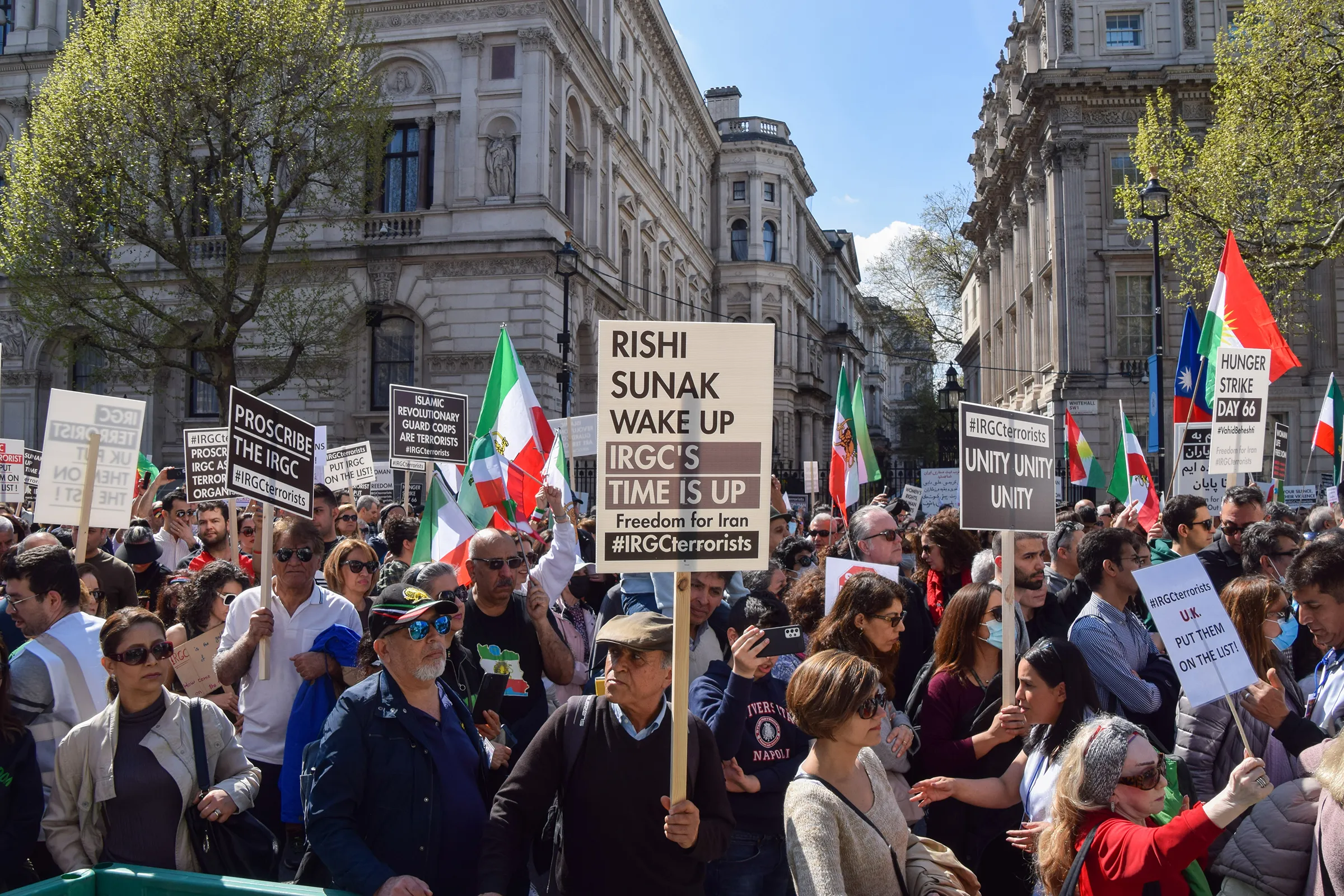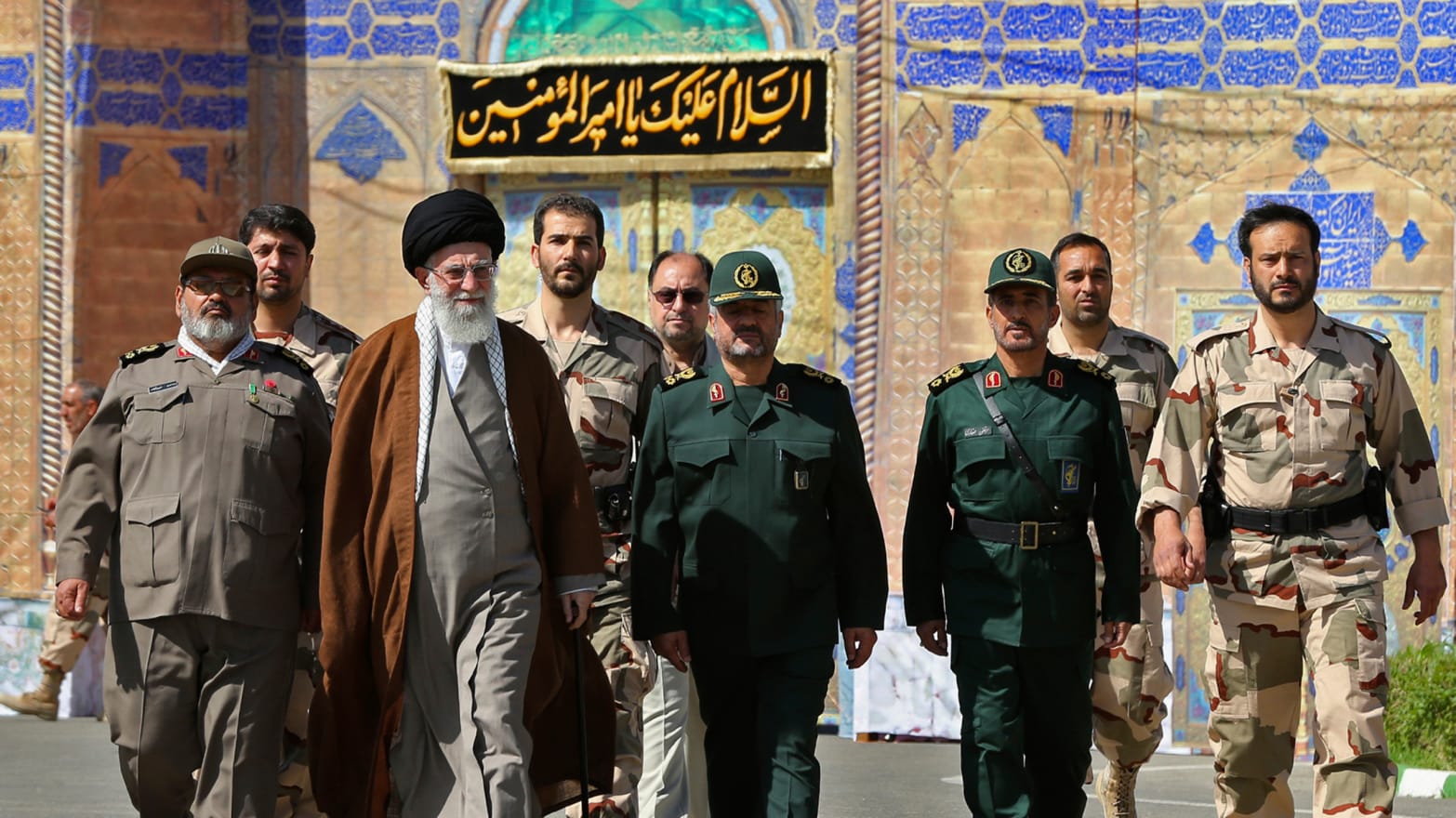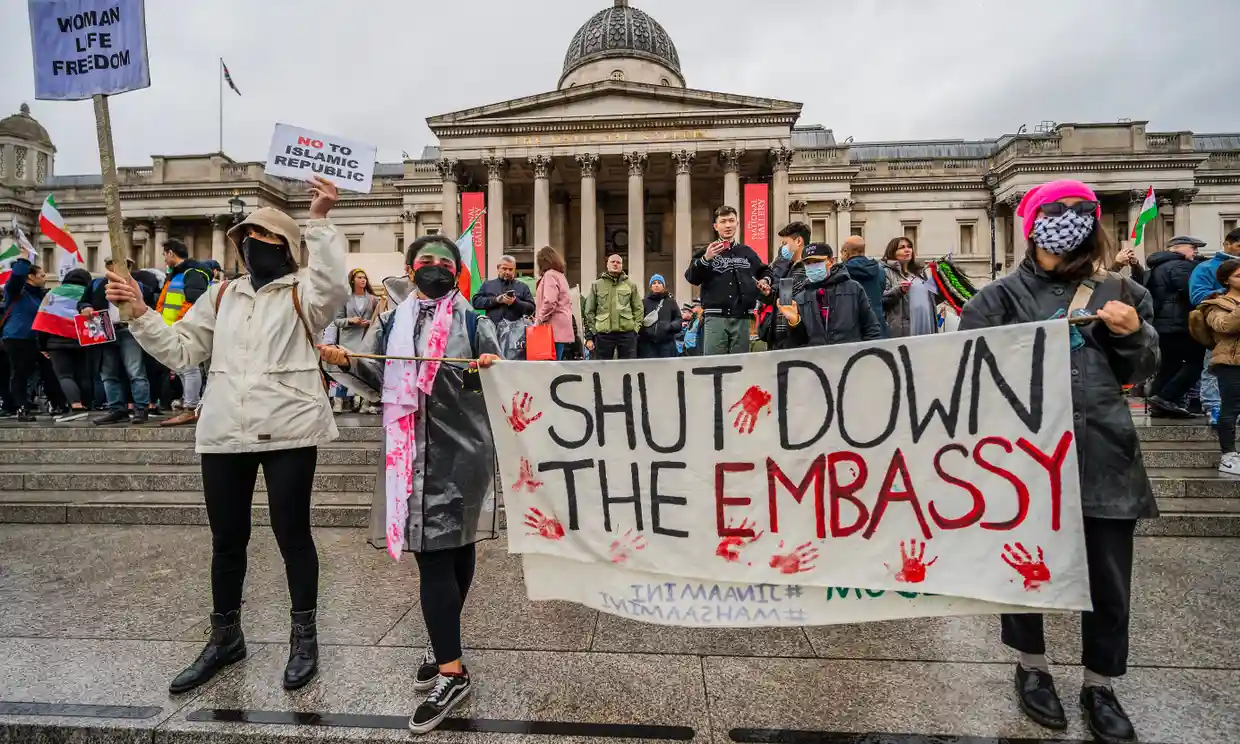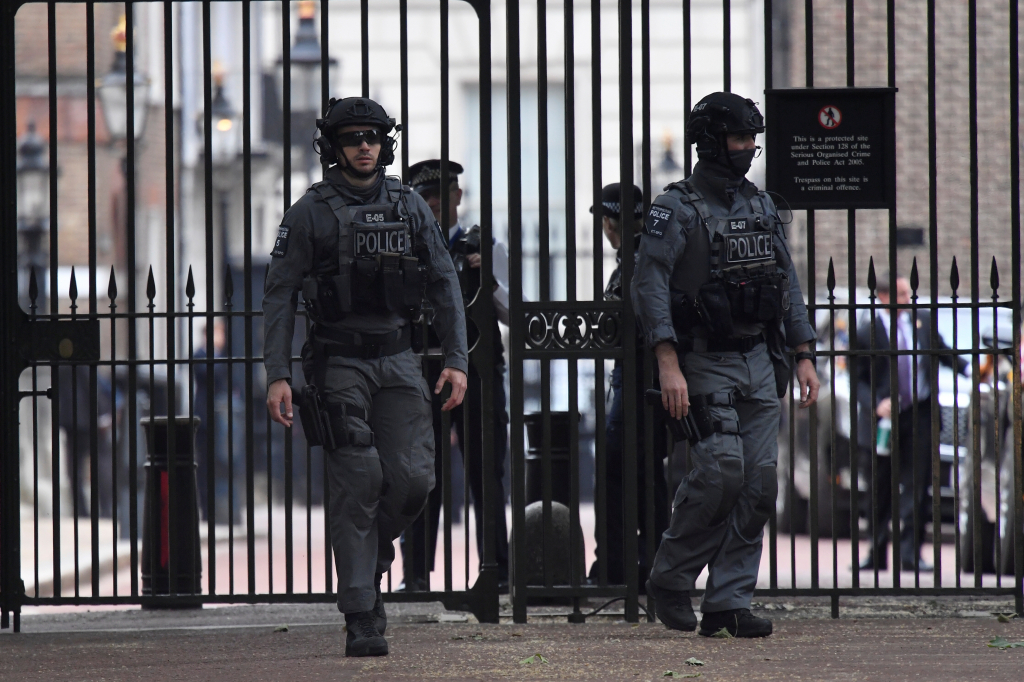This Is How Iran’s IRGC Threatens UK National Security

Amid new evidence of its expanding influence in the country, British Home Secretary Suella Braverman believes Iran’s Islamic Revolutionary Guards Corps (IRGC) is the biggest threat to the UK’s national security, the Telegraph reported.
Braverman expressed her concern about intelligence reports that Iranian agents are trying to recruit members of organized crime gangs to target opponents of the Khamenei regime, and are seeking to escalate their activities in the UK.
In mid-February, British counter-terrorism police announced that they had identified and thwarted 15 Iranian plots to kidnap and kill British dual nationals, stressing that Iranian security threats have quadrupled in the past two years.
On the other hand, these Iranian threats are not limited to political activists and opponents of the regime but also target Persian-speaking journalists abroad.
These developments come after months of tense relations between London and Tehran, especially after Tehran executed last January the Iranian–British citizen Alireza Akbari, a former official in the Iranian Ministry of Defense, after he was convicted of spying for London.
The UK approved 350 penalties against state figures and institutions in Iran, and most of these penalties included cases related to human rights and the judiciary in Iran.
Big Threat
A private source told The Sunday Times newspaper that the British Home Office considers the IRGC the greatest threat to national security, noting that it deals with criminal gangs to carry out operations against opponents of the Iranian regime.
The source added, “They represent a big problem because they have become more aggressive and their appetite is increasing. They are very defensive against anyone who challenges the Tehran government and wants to eliminate it.”
British Home Ministers, led by Security Secretary Tom Tugendhat, have long demanded that the IRGC be classified as a terrorist organization, but this proposal was resisted by Secretary of State James Cleverly, fearing that it might permanently damage diplomatic relations with Iran.
In a speech summarizing the country’s annual assessment of crime threats, Graeme Biggar, head of the UK’s National Crime Agency, warned last month that dangerous organized crime gangs were being used by hostile states to carry out illegal activities in the country.
“Over the past year, we have seen hostile states such as Iran, North Korea and Russia begin to use organized crime groups as their proxies in the UK,” he added.
Reports indicated that there is a belief that the reason behind this threat is that Tehran is finding it very difficult to bring its agents into the country.

In this context, Iran International, an independent TV channel watched by 30 million Iranian viewers at home and abroad, was forced to stop broadcasting from its headquarters in the UK after it received warnings from the Metropolitan Police that it could not protect its employees.
Last November, the British authorities warned the TV channel that its journalists were being threatened by Iranian agents, and the Met Police took measures to enhance security around its offices.
After repeating the threats that the channel’s correspondents received from Tehran, the UK government pledged last December to intensify the protection of Iranian journalists based in London.
It is noteworthy that this is not the first time that the threats of the Iranian regime have been raised against the Persian-language media in the UK.
Three years ago, in the aftermath of the November 2019 protests, the British Journalists Union called on the Iranian regime to stop its campaign of harassment against Iranian journalists, especially threats against staff of Iran International and BBC Persian.
Meanwhile, the International Federation of Journalists reported similar cases, stating that Iranian journalists living in Germany, France and the Czech Republic had been similarly harassed and threatened.

Hostile Activities
Last July, the UK announced the imposition of sanctions on Iran and drafted a bill that would grant London additional powers to target decision-makers in Tehran because of their hostile activities in the UK or abroad, such as Greece, the U.S., Turkiye, France, and Denmark.
The sanctions included 13 individuals and entities responsible for gross human rights violations, including 5 officials in the Iranian prison system, where torture and ill-treatment are prevalent.
In its statement, the British Foreign Office accused Iranian intelligence services of establishing close ties with criminal gangs in the UK and Europe to develop their network capabilities.
In response, the Iranian Foreign Ministry summoned the British chargé d’affaires in Tehran, Isabelle Marsh, to deliver a letter of protest against the sanctions.
British Foreign Secretary James Cleverly told the House of Commons that the Iranian regime has greatly increased its attempts to silence the opposition, which are not limited to Iranian soil.
The minister considered that the attempts to suppress the opposition prove the growing desperation of the Iranian regime in the face of its unpopularity at home and its isolation abroad.
He explained that the bill, which will frame the new penal system, will be referred to Parliament for approval in the coming months.
He added, “We do not seek escalation. Our aim is to prevent and deter hostile Iranian activities on British soil and on the soil of our partners and allies.”
In its statement, the British Foreign Office said that the UK had provided all members of the Security Council with evidence showing that Iran continues to send weapons to its Houthi allies in Yemen, and to Russia, which is using these weapons in its invasion of Ukraine, in violation of the restrictions imposed by the Security Council.

Despite London’s announcement of imposing sanctions on the IRGC earlier this year, there is still increasing parliamentary pressure to officially ban the organization in the UK.
Earlier, The Sunday Times newspaper published a series of reports about the cooperation of British universities with Iranian researchers and research institutions linked to the IRGC to pressure the British government to classify the organization as a terrorist group.
Similar steps have been taken by the U.S. and Canada, two partners of the UK in the Five Eyes intelligence-sharing alliance.
The U.S. designated the IRGC as a terrorist organization in 2019 during the term of Donald Trump, while the UK announced a review at the beginning of this year, whether it would follow Washington or not.
However, there are concerns that this will make it difficult to revive international talks on a deal to curb Iran’s nuclear program. There are also fears that this will lead to the loss of the embassy in Tehran.
Alicia Kearns, chairman of the foreign affairs committee, said: “The proscription of the IRGC would allow us to prosecute those working on its behalf to sow discord, incite hatred and support terror activities and assassinations on British soil.
“There is more and more evidence of the IRGC’s campaigns of transnational repression, we cannot afford not to act,” he added.

Iranian Association
In a related context, The Sunday Times has disclosed details of the close relationship between the IRGC and a student organization located in a former Methodist church in west London.
The Islamic Students Association was set up in support of the religious and political philosophy of Ayatollah Khomeini, who served as the first supreme leader of Iran from 1979 until his death in 1989. It now hosts discussions with government officials and hardline clerics.
The association’s internal elections are also observed by religious representatives of the country’s supreme leader, Khamenei.
In January, Mohammad Hussain Ataee, the association’s former chairman and a master’s degree student at the University of Bradford, attended a conference in Tehran, where he spoke with Khamenei.
The association said Ataee had not been in post since October 2022.
But its Telegram channel has shared posts commending Qasem Soleimani, who served in the IRGC from 1998 until his assassination by a drone strike near Baghdad airport in Iraq in 2020.
Mohsen Fakhrizadeh, the chief scientist of Iran’s nuclear program who was gunned down in his car by armed assassins, has also been referred to as a martyr.
The Jewish Chronicle, a London-based Jewish weekly newspaper, reported last week that online meetings were hosted in which senior leaders of the IRGC participated in the presence of a number of Muslim students at British universities.
The report stated that eight leaders of the IRGC delivered speeches during the meeting, and their speeches included anti-Jewish statements and said that they were approaching the end of the world war.
The meeting, which was broadcast to thousands inside Iran, turned into a direct platform for the IRGC to promote the values of the Iranian regime.
In June, the Islamic Center in London, which is affiliated with Ali Khamenei’s office, posted a notice on its entrance doors announcing the suspension of all its cultural and educational activities until further notice, declaring that the reason for this was special circumstances.

On January 14, 2023, the judiciary in Iran announced the execution of the death sentence issued against Alireza Akbari, who previously held the position of Iranian Deputy Minister of Defense, on charges of espionage for the UK, of which he holds citizenship.
Meanwhile, British Prime Minister Rishi Sunak condemned the execution, describing it as a cruel and cowardly act carried out by a barbaric regime that does not respect the human rights of its people.
British Foreign Secretary James Cleverly wrote on Twitter: “This barbaric act deserves to be condemned in the strongest possible terms, and will not go unanswered.”
The execution of Akbari angered Western countries and non-governmental organizations. London imposed new sanctions on Iranian officials in connection with the suppression of the protests that erupted following the death of the Iranian Kurdish young woman, Mahsa Amini (22 years), after she was arrested by the morality police in Tehran, in mid-September 2022.
Earlier this year, the IRGC arrested seven people with links to the UK in connection with the anti-government protests that shook the country, with the aim of using this matter to gain diplomatic influence.
In turn, analyst Ibrahim Khatib indicated in a statement to Al-Estiklal that if the IRGC is classified as a terrorist organization in the UK, this represents a major tightening in London’s policy toward Tehran, noting that it may complicate attempts to revive the nuclear deal to prevent Iran from acquiring nuclear weapons, although negotiations in this context are currently frozen.
As Mr. Khatib explained, Iran has been following a consistent and clear sectarian, military, nuclear, and authoritarian methodology for a long time, pointing out that raising its issue during these days by the British and American media may be a prelude to opening a new front against it.









